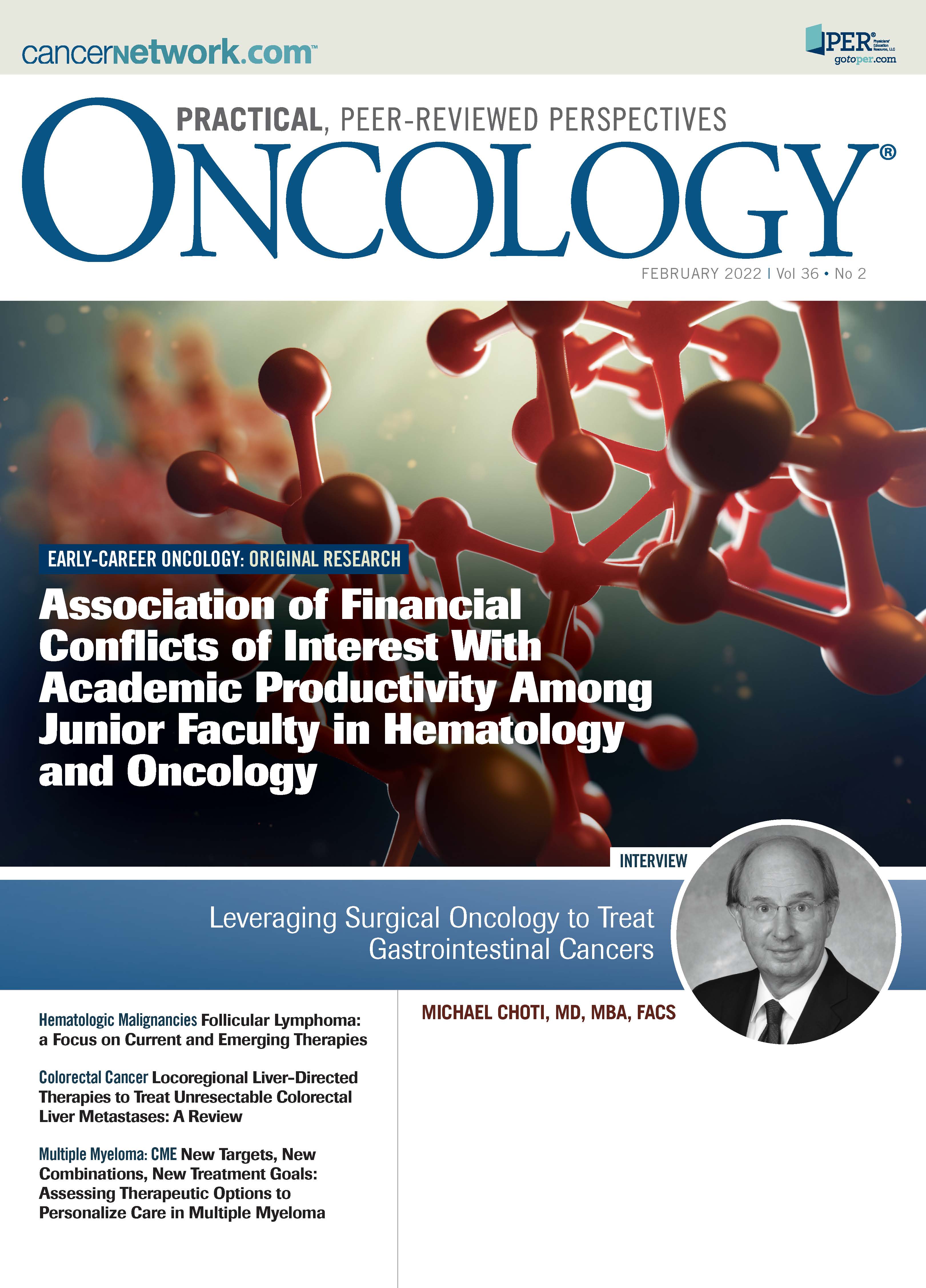2021 American Society of Hematology: Program Highlights
ONCOLOGY co-editor-in-chief Julie M. Vose, MD, MBA, re-caps the 2021 American Society of Hematology conference and discusses which presentations were the most important.
The 2021 American Society of Hematology Annual Meeting & Exposition (ASH 2021) took place in December in Atlanta, Georgia, and included an in-person event as well as a virtual platform. Presenters and attendees from the United States as well as many international locations were able to participate. Health and safety protocols due to COVID-19 were in place and followed carefully to try to prevent transmission for the in-person attendees. Thankfully, the virtual platform allowed many more attendees from around the world to view and participate in the meeting.
- Throughout the meeting, a number of awards and lectureships based upon the awardees’ work were presented, including:
Wallace H. Coulter Award for Lifetime Achievement in Hematology to Harvey F. Lodish, PhD, professor of biology and biomedical engineering at Whitehead Institute for Biomedical Research and Massachusetts Institute of Technology, for his key contributions and studies of the structure and biogenesis of red blood cells; - Ernest Beutler Basic Science Award to Margaret A. Shipp, MD, director of the Dana-Farber/Harvard Cancer Center Lymphoma Research Program, for her work on the genetic basis of PD-1–mediated immune evasion in Hodgkin lymphoma and primary mediastinal B-cell lymphoma; and
- Ernest Beutler Translational/Clinical Award to Stephen M. Ansell, MD, PhD, chair of the Mayo Clinic Lymphoma Group, for his work in understanding the tumor microenvironment in lymphomas, including PD-1 blockade. Many more awards and lectureships outlining key findings in hematology were included at ASH 2021.
There were many sessions, round tables, and educational sessions on areas of high interest such as COVID-19 and the viral effects on patients with hematologic or thrombotic conditions, including some patients’ decreased ability to mount an immune response to COVID-19 vaccines. A focus on diversity, equity, and inclusion included informative sessions on barriers to clinical trial design and enrollment, availability of transplantation to minority patients, race and science, and lessons from a global pandemic.
The scientific and poster sessions were wide-ranging in the topics presented. The hybrid of in-person and virtual meetings in some ways was beneficial to the presenters in the ability to reach a much wider audience. The plenary session included an introducer for each abstract to discuss the background of the abstract topic. Topics of abstracts in the plenary session included:
- SARS-CoV-2 and the pathologic mechanism of prothrombotic events caused by the virus;
- Studies of the molecular landscape of TP53-mutated leukemic transformation in myeloproliferative neoplasms;
- Primary analysis of the ZUMA-7 study (NCT03391466): a phase 3 randomized trial of axicabtagene ciloleucel (axi-cel) versus standard-of-care therapy in patients with relapsed/refractory large B-cell lymphoma;
- Efficacy and safety of fitusiran, an siRNA therapeutic, in a multicenter phase 3 study in individuals with hemophilia A or B, with inhibitors;
- Decreased risk of Alzheimer disease in patients with clonal hematopoiesis of indeterminate
potential; and - Profiling of circulating tumor DNA for noninvasive disease detection, risk stratification, and minimal residual disease monitoring in patients with central nervous system lymphoma.
I hope over the next few years the world becomes a safer place and we can get back to more normal educational and scientific sessions for the American Society of Hematology as well as other hematology and oncology meetings.

Navigating AE Management for Cellular Therapy Across Hematologic Cancers
A panel of clinical pharmacists discussed strategies for mitigating toxicities across different multiple myeloma, lymphoma, and leukemia populations.